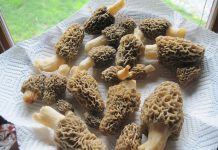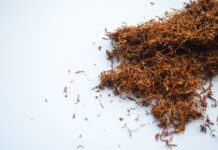The other night, my youngest livestock guardian dog and I stood together, quietly listening to a coyote chortle in the distance. Later that night, the coyotes sang. The guardian dogs answered, but stuck close to the flock.
In the past, when I heard that song, a ball of dread formed in my stomach. It didn’t happen all the time, but when a coyote got a taste for sheep, carnage was inevitable. I’m all for coexisting with nature, but not when the balance is out of whack. Now, as the livestock guardian dog pack grows, the coyotes are keeping their distance.
Crossroads
Predators and parasites are why we have used an intensive, partial-housing system. Ewes are on pasture, but are housed, depending on the time of year, for lambing. Market lambs have been finished inside. It has been part of our parasite management — and it limited the buffet options for our local coyotes.
But we, like our broader industry, are at a crossroads. We need to be open-minded. There are more marketing opportunities centered around pasture-based systems. We have adaptable sheep. We have grazing land that could be improved and used better. We’ve got wooded acreage that could be put to use. We do not need to house lambs all the time anymore.
The guardians are doing their job. And parasites, well, we’re working on that, too. We’ve decided to dip our toes into multi-species grazing. Cattle. Sure. Goats. NOPE. Pigs. Maybe. Chickens. Well … sure. Pretty much anything is on the table right now. And that’s what it’s all about: what people want to put on their tables.
Meatless options
During a discussion hosted by The Center for Food Integrity Sept. 13, representatives from multi-national company, Tyson Foods, Inc., and White Castle, a Midwest chain known as the country’s first fast-food joint, talked unapologetically about their move to alternative proteins.
David Ervin, Tyson’s vice president for alternative proteins, said once the company changed its focus to “proteins,” it opened up opportunities. “We are absolutely in this market,” he said.
White Castle was founded in 1921. It started with a limited menu — including a hamburger slider and apple pie. The restaurant survived the Great Depression, said Shannon Tolliver, White Castle’s social responsibility and environmental sustainability manager. Now, White Castle offers several meat alternatives, which they say have been well received.
Jamie Richardson, the company’s vice president of corporate relations, calls this time the “omnivore’s delight.”
Choices
Bet you never thought you’d see job titles with the phrases “alternative proteins” or “social responsibility” in them. Or that you’d read about this: On Sept. 12, The Washington Post published an article headlined, “Shalt thou eat an Impossible Burger? Religious doctrine scrambles to catch up to new food technology.”
The gist? With things like plant-based shrimp on the horizon, plant-based and cell-cultured options could open a new frontier for anyone with religious dietary restrictions. One rabbi told The Washington Post: “A person today knows that being kosher does not mean you have to go to the back of the store and look for something like a second-class citizen. Having those products commonly available is achieving a great milestone.”
That’s the crux of it. Things are changing. Author and cultural anthropologist, Ujwal Arkalgud, had this to say during the discussion with Tyson and White Castle. “The expectations are new and emerging and they are different,” he said. “And because these expectations are different, it’s becoming a culture in itself.”
As Alan Guebert pointed out in his Sept. 12 column, the number of vegans and vegetarians hasn’t changed in decades. That was supported by the Tyson and White Castle officials. Many people buying the alternative proteins are just looking to mix things up or diversify. They are not leaving meat behind, necessarily.
Not even close
According to the United Nations, global meat consumption is expected to double by 2050. Why? Because the middle class is growing — and I don’t mean in Western countries.
When I first moved to Nairobi, Kenya, in 2012, foreigners were the only ones eating out and doing yoga. That has completely changed — many more Kenyans have disposable income, and they’re buying smoothies, sushi and yoga mats.
The United Nations projects the world’s 10 fastest growing cities will be in Africa, between now and 2035. India, China and Nigeria alone are expected to account for 35% of the world’s fastest urban growth by 2050. Meat isn’t going anywhere.
Shifts
Arkalgud believes alternative protein projections need to be dialed back. “Every time there’s a shift, the pendulum always swings to the extreme end,” he said.
He urged farmers and ranchers to be patient. Soon, alternative protein companies will face similar questions — namely, how is this impacting the environment?
And that is loaded. While a list of ingredients may mean that product is nutritionally dense, it’s also not simple or un-processed. “There are a lot of doors that are opening with this,” Arkalgud said. “There are innovation opportunities on either side of the aisle.”
Look at why
When a cultural shift happens, he said, it’s best not to look at what is happening, but why. “People don’t want to pass by their lives feeling like they haven’t done something,” he said.
In other words, meatless burgers represent environmental consciousness and social connectedness right now.
So, what do we farmers and ranchers do? Do we make fun of vegans and post memes about vegetables on social media, or do we take a breath and think about why we work the land and how we can adapt to change?
It’s not about what we’ve always done. It’s not about maintaining tradition. It’s not even about being “right.” It’s about feeding people. Everyone eats. It just looks different right now.














Sorry-I do NOT agree whatsoever. For many years, farmers have been told by huge government controlled land colleges that ‘farmers must feed the world-it is farmer’s responsibility to feed the projected growth of the world!’….where has this lead? To the LITERAL mass destruction of farmers!!! Finances MUST be first and foremost to EVERY farmer. It is bad enough that huge food processing companies have destroyed MOST farms, but to see other people try to destroy farms by dictating what farmers should do is sickening. People have far too much time AND money if this is occuring-these people AND the world need to LITERALLY starve to understand just how good they have had things. The Bible foretells this- it can not happen soon enough. I implore ALL youth to learn how to raise their own food-but NOT as a way to make a living. People, food processing monopolies, AND the government want CHEAP food-no matter how many farmers they destroy.